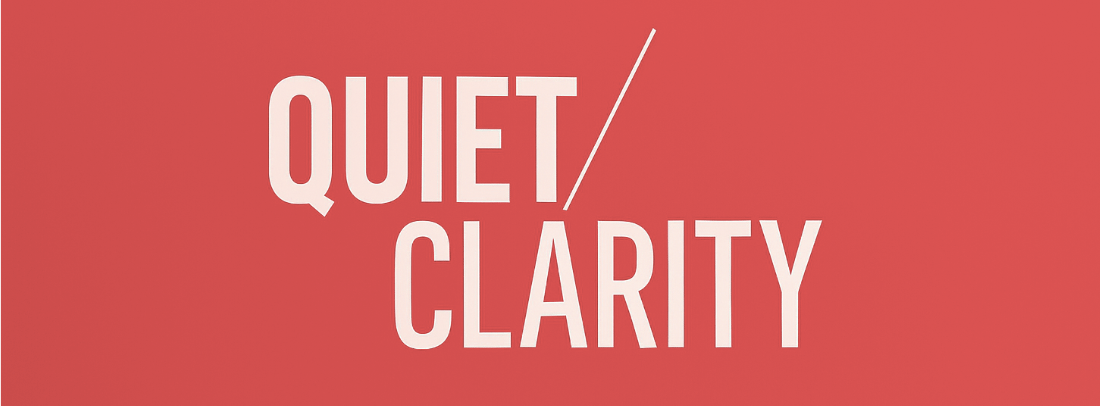
Quiet Clarity is a 2x/week newsletter and podcast for people who want to build a life of presence, depth, and deliberate intention.
You think you have to beat others to win—like every game is zero-sum.
If they succeed, you lose. If you win, they must fail.
But what if the pie isn't fixed? What if we're playing the wrong game entirely?
There are two kinds of games: finite games played to win, and infinite games played to keep playing.
But what if success isn't about beating others but about finding ways for everyone to win?
Where It Showed Up in My Life
I used to think everything was a competition.
Every opportunity someone else got meant one less for me.
Every success around me felt like my failure.
Then something flipped.
I started thinking about infinite games where everyone wins—where my success actually helps yours.
Last week, a client dropped our services. Instead of panicking in scarcity, I stayed grateful.
I kept giving to our remaining clients, focusing on value over fear.
Yesterday, we signed one of our biggest deals yet.
The abundance didn't show up how I expected, but it flowed when I stopped keeping score.
What the Wisdom Reveals
In the 1970s, a teacher named Muhammad Yunus visited a poor village in Bangladesh.
He met women who made bamboo stools but were trapped in endless debt.
They had to borrow tiny amounts—less than $1—just to buy supplies.
But lenders charged such crushing interest that the women never made profit, never escaped the cycle.
Yunus had what everyone called a crazy idea: "What if I just gave them the money?"
No contracts. No collateral. Just trust.
Banks laughed at him. "Poor people won't pay you back," they said. "You'll lose everything."
But Yunus saw differently.
He gave 42 women a total of $27 from his own pocket.
A few weeks later, every single one paid him back.
That tiny act of abundance thinking sparked a revolution.
He founded Grameen Bank, giving tiny loans to millions based on one principle: trust people, and they become trustworthy.
The banks operated from scarcity—protect what's yours, assume the worst.
Yunus operated from abundance—give first, trust always.
Today, Grameen has distributed over $6 billion in loans.
Muhammad Yunus won the Nobel Peace Prize.
Millions escaped poverty.
All because one man played an infinite game when everyone else was playing finite ones.
He didn't ask "How do I win?" He asked "How do we all keep playing?"
The $27 wasn't about the money.
It was about changing the game entirely.
How I'm Trying to Live Now
Am I playing to beat others or to lift everyone higher?
I've started asking different questions:
Instead of "How do I win?" I ask "How do we all keep playing?"
Instead of "What's mine?" I ask "What can I give?"
When purpose feels unclear, I follow what Dr. Martha Beck teaches: notice what feels lighter in your body.
That lightness is your compass toward abundance.
For me, it meant letting go of day-to-day control and trusting my team.
Ironically, our biggest success came when I stopped gripping so tightly.
The more you give, the fuller your cup becomes. That's the paradox of abundance.
Naval Ravikant says it best: play long-term games with long-term people.
All returns—wealth, relationships, knowledge—come from compound interest.
But compound interest only works in infinite games.
Start small. Give value in every interaction without keeping score.
Trust when others would protect.
See abundance where others see scarcity.
Because success isn't measured by what you keep—it's felt by what you pour into the world.
Just like Yunus with his $27, your smallest act of abundance thinking might be the one that changes everything.

